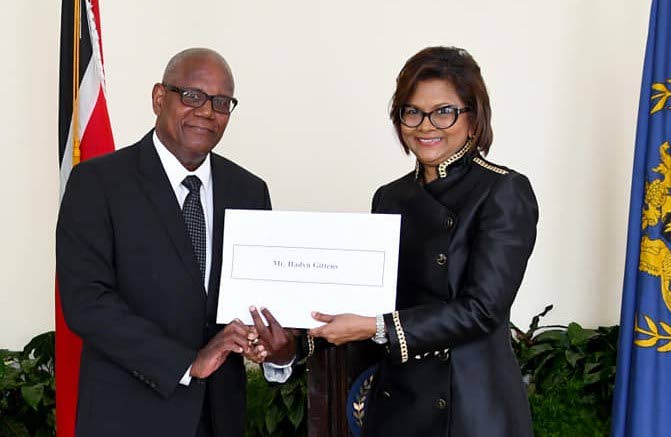New chairman: Integrity Act will guide commission

THE Integrity Commission will be guided by the Integrity in Public Life Act (IPLA) in the discharge of its duties
This was the commitment given by its new chairman Haydn Gittens on January 19.
Gittens was appointed chairman on January 12, replacing Prof Rajendra Ramlogan whose term of office came to an end.
In response to questions from Newsday, Gittens said, "I am guided by the fact that the Integrity Commission is a creature of statute."
He added, "Thus, it is exclusively guided by the IPLA, which provides the frame of reference within which the commission carries out its responsibilities through its compliance, investigation and public education functions."
Against this background, Gittens said he could not comment on a statement made by the Prime Minister on January 3, that the commission is undertaking too many ill-advised and politically-motivated investigations.
Rowley made that comment in response to a statement issued by the commission on January 2 that it had initiated legal action in the High Court "to determine what is the State's obligation under the IPLA to provide it with adequate financial support."
The commission subsequently withdrew its action on January 18.
Gittens spoke about some of the main objectives for the commission during his tenure over the next three years.
"The Commission will maintain its mandate of eradicating corruption and facilitating the highest ethical standards as required by the provisions of the IPLA, 2010."
Gittens said, "In fulfilling this mandate, the commission’s objectives are to ensure compliance with the act, to detect and eradicate corrupt practises and dishonest conduct, and to educate the public in an effort to engender a national culture of integrity."
The commission, he continued, is focused on executing these functions, and improving its effectiveness as the foremost anti-corruption institution.
"Underpinning this mandate is the commission’s goal to inspire public confidence."
Gittens added that the commission's primary responsibility is to the population.
"Public trust in independent institutions is integral in the fight against corruption. But it cannot be obtained without increasing the commission’s impact, which we expect to achieve over time."
How the commission would ensure greater compliance by public officials with respect to the filing of their declarations of interest under the IPLA?
Gittens said, "The commission is bound by the IPLA to ensure compliance of persons in public life with respect to the filing of declarations of income, assets and liabilities and statements of registrable interests."
The commission, he continued, will maintain the present approach to non-compliance, which has yielded significantly positive results.
"As such, the strict policy on non-compliance will be upheld, in accordance with the IPLA, to promote transparency and accountability."
He said the commission is also committed to making the process of submitting declarations and statements of registrable interests more user-friendly for declarants whilst ensuring the continued receipt of all relevant information.
"Recognising that the ease of submitting these documents can translate to higher compliance rates, the commission continues to implement procedures such as the acceptance of the electronic filing of the declaration of income, assets and liabilities (Form A) and the statement of registrable interests (Form B).
Gittens said the commission will be advocating for legislative changes to help it discharge its mandate better.
"The IPLA is a crucial piece of legislation that guides the Integrity Commission in promoting transparency and accountability in public life in Trinidad and Tobago."
Gittens observed that past commissions acknowledged the necessity of being prepared to review and amend legislation so that the commission could fulfil its mandate in a more effective manner over time as circumstances change.
"The commission will therefore continue to consider, and where justified, recommend amendments to the IPLA to the relevant authorities, so as to ensure that the commission will be in a better position to effectively discharge its functions."
How will the commission address issues of funding, filling vacant posts and reducing internal conflicts between managers and employees?
Gittens said the commission's directors and its management are working together to discharge the functions of the commission.
"With respect to funding, the commission will utilise its allocation to carry out its mandate. The commission is also in the process of submitting a note to Cabinet for the employment of staff and is optimistic that this request will be promptly and favourably considered."
In its 2022 report, the commission said it faces "a financial stranglehold, owing to the deficient and significantly depleted budget, which suffocates the efforts of the commission to perform its statutory duties."
The commission added that the drastic depletion of the budget can be observed by comparing the $26 million allocated to it in 2015 with $8.6 million allocated in 2023.
While it received a small increase from $8 million in 2022 to $8.6 million in 2023, the commission said the latter and most recent figure is woefully short of what is required to ensure the implementation of its mandates.
The commission said it has several open positions which cannot be filled owing to lack of funding.
"This has severely affected the progress of the investigations unit in particular."

Comments
"New chairman: Integrity Act will guide commission"